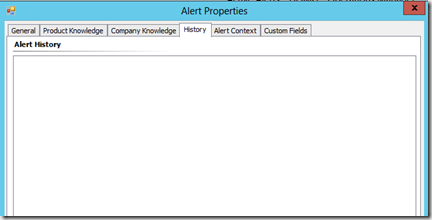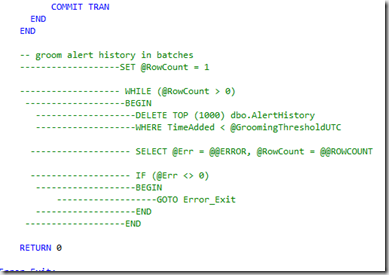This error has been there before in OpsMgr 2007 and also resolved, however it has been re-introduced in SCOM 2012 and is still an issue in SCOM R2 UR2.
If you have active alerts without any alert history or only a recent entry, then it is due to this bug.
Until a fix comes out the workaround is to update the store procedure that takes care of alert grooming. I recommend you raise a support case with Microsoft to get the workaround from Microsoft. But the workaround will be this one. Important – test this in your SCOM test environment first.
1. Log into the server that hosts the OperationsManager database,
2. Open Microsoft SQL Server Management Studio,
3. Expand Databases > OperationsManager > Programmability > Stored Procedures > dbo.p_AlertGrooming,
4. Right-click dbo.p_AlertGrooming and select Modify
5. Search for the comment that says
–groom alert history in batches
and comment the following lines
SET @RowCount = 1
WHILE (@RowCount > 0)
BEGIN
DELETE TOP (1000) dbo.AlertHistory
WHERE TimeAdded < @GroomingThresholdUTC
SELECT @Err = @@ERROR, @RowCount = @@ROWCOUNT
IF (@Err <> 0)
BEGIN
GOTO Error_Exit
END
END
Here’s the lines that’s commented out.
Now alert history will not be groomed on active alerts.
Lars

